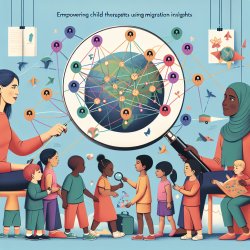Understanding Infertility Care in Under-Resourced Settings
Infertility is a complex issue that affects millions worldwide, with significant disparities in access to care, especially in under-resourced settings. The research article "Clinical vignettes and global health considerations of infertility care in under-resourced patients" provides critical insights into these challenges and opportunities. This blog post aims to help practitioners improve their skills by implementing the outcomes of this research or encouraging further exploration.
Key Takeaways from the Research
The article highlights the significant barriers faced by under-resourced populations, including financial constraints, language barriers, and cultural stigmas. It presents two clinical vignettes that illustrate the challenges and successes in providing infertility care to these populations.
- Financial Barriers: The cost of infertility treatments like IVF is prohibitive for many, with only 15 states in the U.S. offering some form of mandated infertility treatment coverage.
- Language and Cultural Barriers: Effective communication is crucial, yet many translators lack the specialized vocabulary needed for infertility care.
- Unique Challenges for Refugees: Refugees face additional hurdles, including trauma from war and displacement, which complicate their access to care.
Strategies for Practitioners
Practitioners can adopt several strategies to improve outcomes for under-resourced patients:
- Comprehensive Assessments: Conduct thorough medical evaluations to identify any health issues that may impact fertility. This can guide appropriate referrals and interventions.
- Enhanced Translator Training: Train translators in the specific lexicon of infertility care to ensure accurate communication and understanding.
- Interdisciplinary Collaborations: Work with refugee support systems and community organizations to provide holistic care that addresses both medical and social needs.
- Culturally Competent Care: Develop cultural competence to understand and respect the unique challenges faced by diverse populations.
Encouraging Further Research
While the research provides valuable insights, there is a need for further studies to explore innovative solutions and best practices in providing infertility care to under-resourced populations. Practitioners are encouraged to contribute to this body of knowledge through research and collaboration.
To read the original research paper, please follow this link: Clinical vignettes and global health considerations of infertility care in under-resourced patients.










